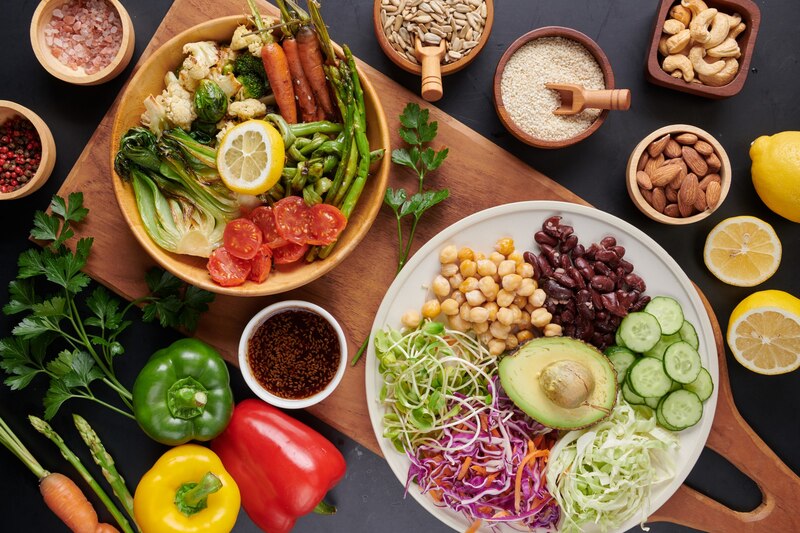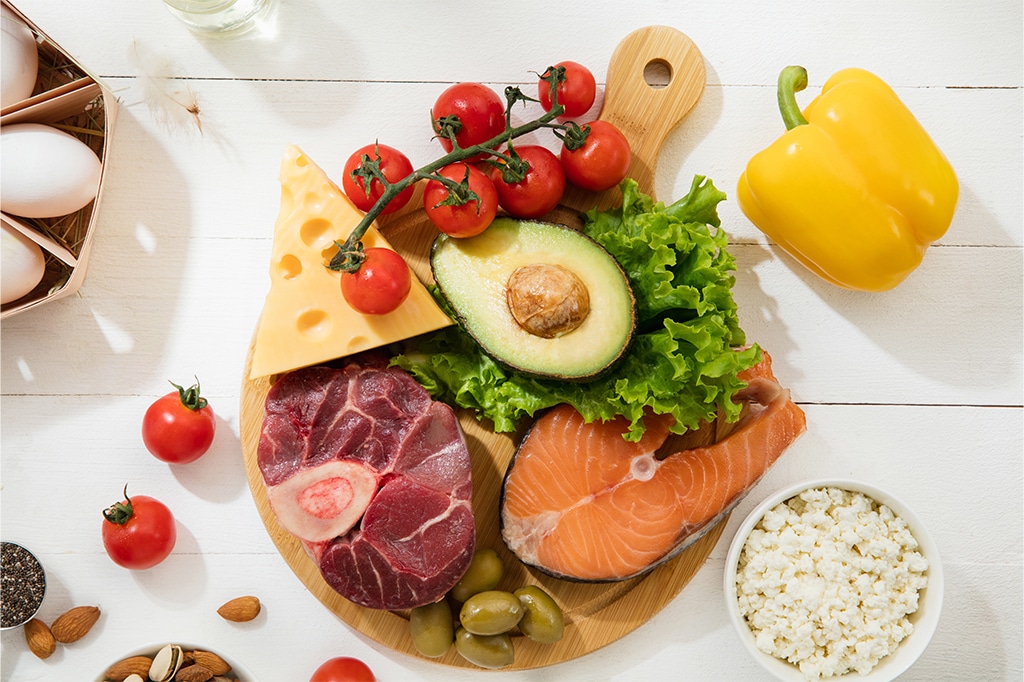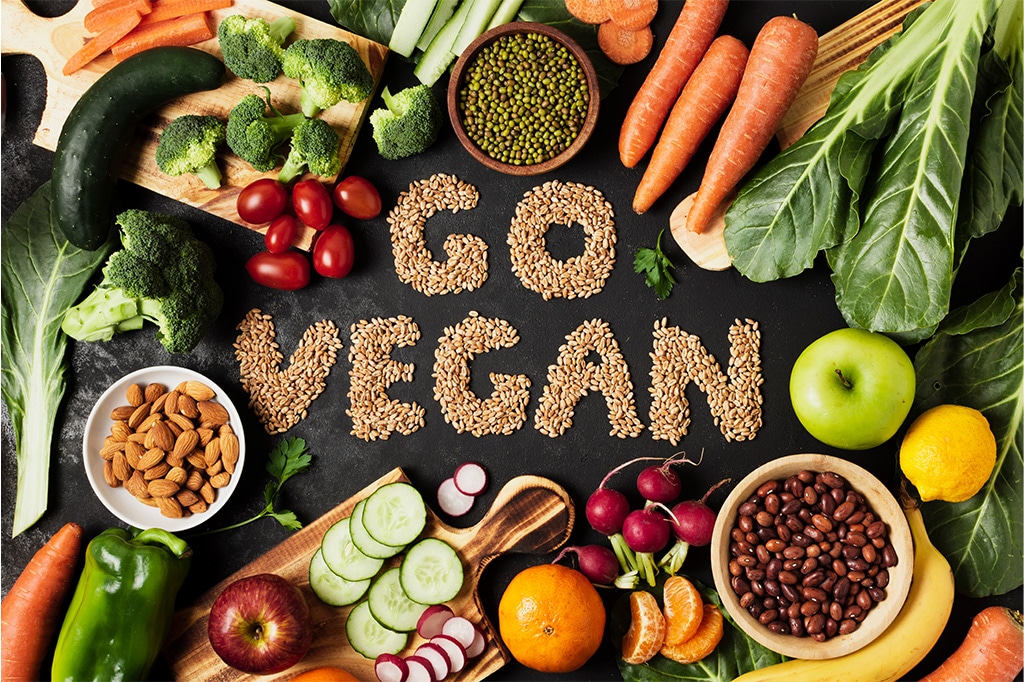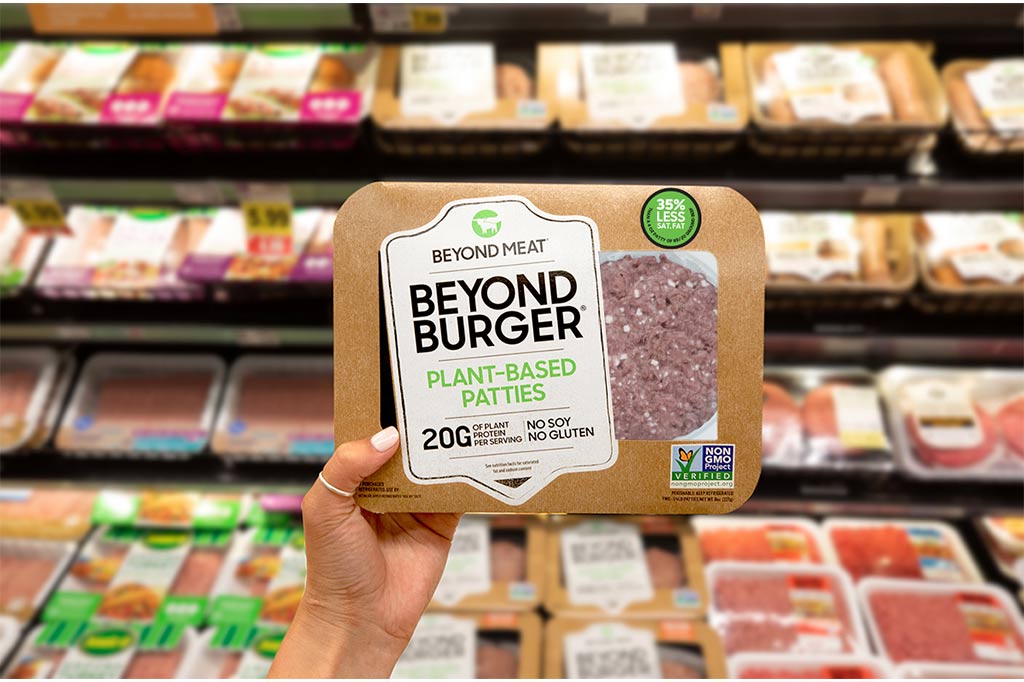Food can both exacerbate and alleviate chronic inflammation.
If you’re anything like me, you scraped your knees or elbows numerous times in your life. Redness, irritation, swelling, and discomfort were probably present after each incident. Inflammation is the body’s natural response to injury or illness. Although the outward manifestations of inflammation are more well-known, the body can also experience inflammation on the inside. It’s important to keep this internal inflammation under control because prolonged inflammation can have devastating effects on our health. In this article, we examine the role that diet can have in reducing inflammation inside the body. First, though, we need to define the term and discuss the telltale signs that it is in effect.
Can you define inflammation for me?
When the body detects a foreign threat, the immune system sends out signals to repair the damage by activating a process known as inflammation. Some examples include scraped knees, cuts, and infections sustained while playing on the playground. The white blood cells and other mending molecules in your body will rush to the scene of the problem to eliminate the harmful cells and their debris. This is a type of inflammation known as acute inflammation, and it plays a crucial role in the body’s natural recovery.
Inflammation aids the immune system in fighting off infection and can serve as a barrier against outside threats. It’s an important step in getting better in the vast majority of cases.
However, due to a medical issues, some people’s immune systems do not function normally. This defect may cause chronic or intermittent low-grade inflammation.
Several disorders, including psoriasis, rheumatoid arthritis, and asthma, are characterized by persistent inflammation. It has been suggested that a change in diet may alleviate symptoms.
Plant-based foods, those high in omega-3 fatty acids, whole grains, lean protein, heart-healthy fats, and spices are the mainstays of an anti-inflammatory diet. Refined foods, red meats, and alcohol are all things that are discouraged or restricted.
No one set food plan fits all people on the anti-inflammatory diet; rather, it’s a way of eating. The Mediterranean diet and the DASH diet are examples of anti-inflammatory diets.

When is inflammation bad?
If inflammation persists over an extended period, it does more harm than benefit. Without an injury or infection to treat, the body keeps activating the same cells over and over again, and they begin damaging good tissue. Scientific evidence suggests that persistent inflammation can lead to major health problems, including cancer, heart disease, diabetes, asthma, osteoporosis, and Alzheimer’s, to name just a few.
When the inflammation is internal, it is considerably more difficult to detect because the symptoms are so common that we no longer notice them or are so mild that they are barely noticeable. Some symptoms of an internal imbalance include fatigue and lethargy, chronic stomach pain, unexplained gains or losses in weight, and dry, itchy skin.
What exactly triggers inflammation?
Several factors contribute to persistent inflammation. For instance, studies have found that exposure to air pollution raises the body’s own inflammatory and immunological response levels. Chronic inflammation has also been associated with exposure to microplastics and lifestyle factors including stress, smoking, and inactivity can trigger chronic inflammation.
Chronic inflammation, in what we eat has been related to a diet high in sugar, refined and processed foods, trans fats, and animal products.
Medical doctor, public speaker, and best-selling author Dr. Michael Greger MD FACLM claims that eating “just one meal” of meat, dairy, and eggs can cause inflammation “within hours.” On his blog NutritionFacts, he explains, “Within 5 or 6 hours, the inflammation starts to settle down, but then what happens? Lunchtime!”
So, “then we can hammer our arteries with another load of animal products for lunch,” he says. According to some research, people who follow this pattern of behavior spend the majority of their lives in a state of low-grade inflammation. Meal after meal, we may be unwittingly laying the groundwork for inflammatory disorders like diabetes, high blood pressure, and even malignancies.
A healthy diet can both prevent and treat chronic inflammation. Several plant-based foods, such as vegetables, fruits, seeds, and spices, have been related to reduced levels of chronic inflammation.
What is an anti-inflammatory diet?
It’s possible that some food components could initiate or exacerbate inflammation. Fresh, healthy foods are less likely to have this effect than processed or sugary options.
Fruits and vegetables are the mainstays of an anti-inflammatory diet. Antioxidants can be found in abundance in plant-based meals. However, the generation of free radicals can be triggered by some meals. Some examples are items that are fried in oil that have been cooked and reheated multiple times.
Antioxidants in the Diet
Molecules in food called Trusted Sources assist the body get rid of harmful free radicals. Many physiological activities, such as metabolism, produce free radicals as unavoidable byproducts. The number of free radicals in the body can be boosted, though, by things like stress and smoking.
Cellular damage can be caused by free radicals. This injury heightens the probability of inflammation, which in turn can contribute to a wide variety of disorders.
The body manufactures certain antioxidants that assist it to remove these hazardous compounds, but dietary antioxidants also aid.
Foods high in antioxidants are preferred over those that promote the free radical generation, as part of an anti-inflammatory diet.
Omega-3 fatty acids, which are abundant in oily fish, may help lower the levels of inflammatory proteins in the body. However, the Arthritis Foundation also notes that fiber can have this effect.
Different Dietary Approaches to Reduce Inflammation
Anti-inflammatory concepts are already reflected in many mainstream diets. Examples of heart-healthy foods that are common to both Mediterranean and DASH diets include fresh produce, fatty fish, whole grains, and healthy fats.
While inflammation may play a role in the development of cardiovascular disease, studies have shown that adhering to a Mediterranean diet high in plant-based foods and heart-healthy oils can mitigate this risk.
Reducing inflammation with these 7 plant-based groups
To lessen inflammation, try some of these plant-based options. Keep in mind, if you are worried about how inflammation is affecting your health, you should always consult a medical professional.
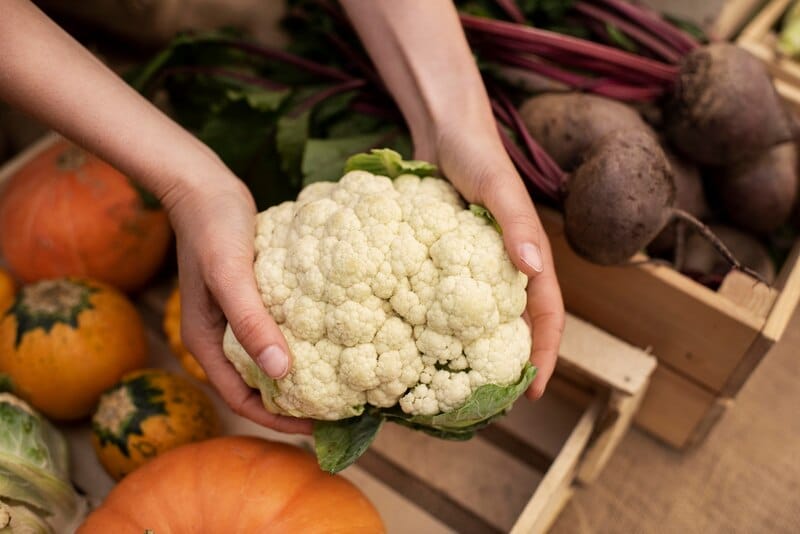
1 Vegetables
Vegetables should make up the bulk of your diet. Vegetables like kale, spinach, cauliflower, carrots, beets, and sea vegetables are the gold standard of natural healing medicines because of their high concentrations of anti-inflammatory and antioxidant compounds. Instead of frying, roasting, or grilling your vegetables, try eating at least four to five portions each day of them in their raw, slow-cooked, lightly simmered, or steamed forms. If you’ve been including them in every meal, even breakfast, you deserve a pat on the back. Wake up with a strawberry-spinach smoothie!
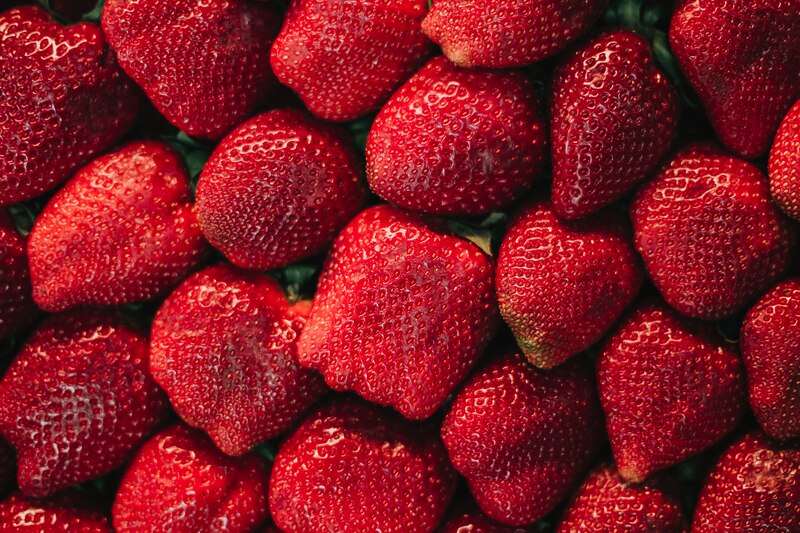
2 Fruits
Fruits like strawberries, raspberries, blueberries, and pink grapefruit have relatively low levels of natural sugar and should be prioritized in your diet. Dr. Andrew Weil, an expert in integrative medicine and author of several best-selling books, advises his patients to eat fewer of the high-sugar fruits native to warmer climates and instead eat a wide variety of organic, seasonal, and frozen fruits of many hues.
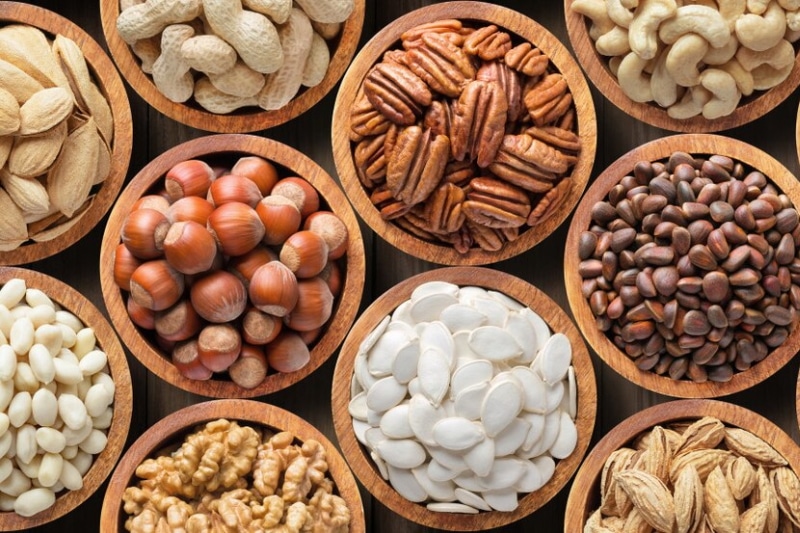
3 Seeds and nuts
Five to seven servings of nuts and nut oil, flax, chia seeds, extra virgin olive oil, and other healthy fats should be consumed daily, while marine sources such as algae and phytoplankton should be obtained through tonics or supplements.
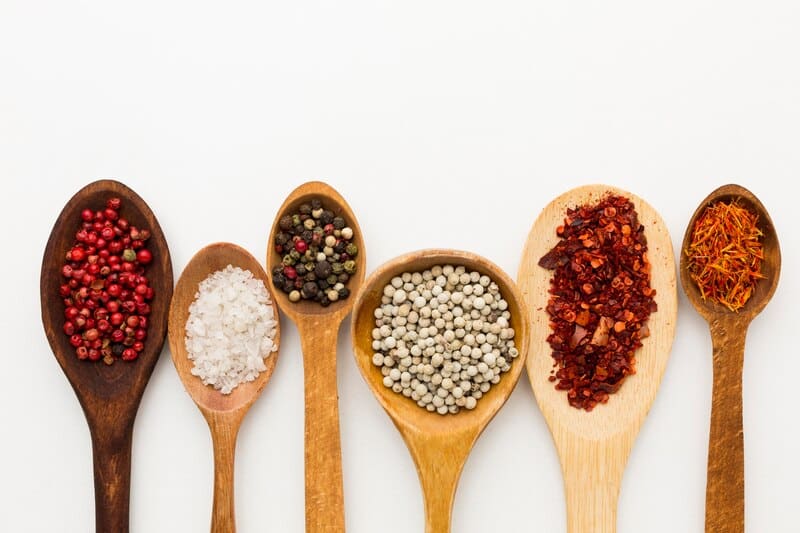
4 Spices
Spices, which have been shown to reduce inflammation in the body, should be used liberally in all cooking. In massive amounts, use spices like turmeric, ginger, red pepper, and garlic (grant yourself an exception on the last one during date night).
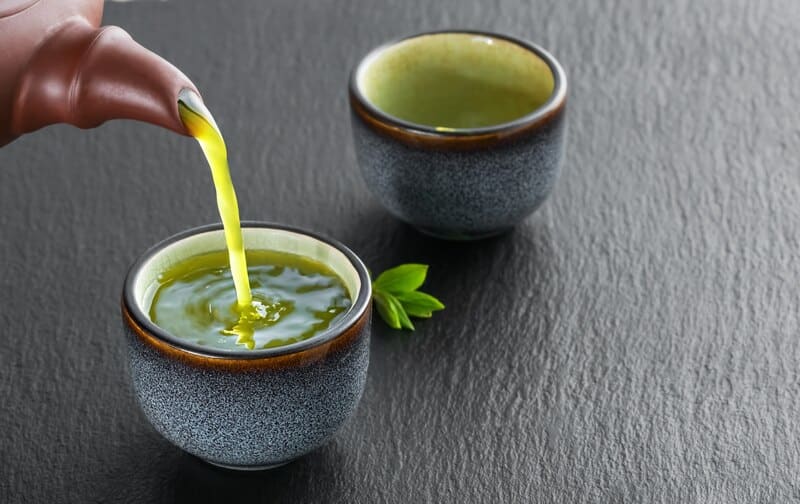
5 Tea
Different kinds of teas, but especially Green tea have an abundance of anti-inflammatory antioxidant catechins making it a potent weapon against inflammation. If you want a good cup of coffee, you need to start with high-quality, organic beans and carefully follow the brewing instructions. Get a drink!

6 Supplements
Vegans who are savvy about their diets know how crucial B12 is, but it’s worth repeating that taking a multivitamin and mineral supplement can help make up for any nutritional deficiencies that may exist as you adjust your diet. Include vitamin C, vitamin E, and a combination of carotenoids in your regular vitamin regimen.

7 Healthy Desserts
Dark chocolate, which contains 70 percent cocoa or more, is a healthy treat that provides antioxidant advantages but should be used in moderation. Yes, the health benefits of chocolate have been proven correct.
Thoughtful and conscientious living, in addition to a healthy diet, is essential in preventing chronic diseases. While dietary changes are essential, other factors such as stress reduction and making space in your life for things that boost your health, happiness, and well-being are also crucial.

